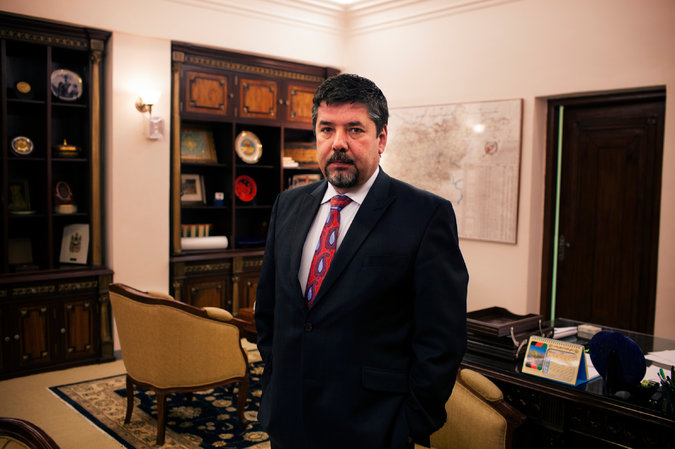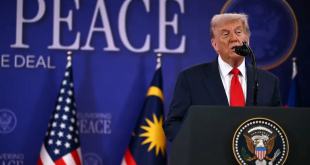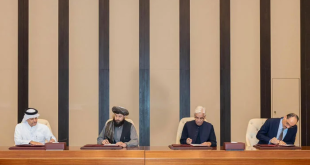Abdul Zuhoor Qayomi-KABUL: The National Directorate of Security (NDS) on Sunday said the memorandum of understanding (MoU) signed with Pakistan’s Inter-Services Intelligence (ISI) was not finalized.
The spy agency in a statement termed the MoU on intelligence cooperation a common deal. The statement said that the agreement was not implementable because it was not finalized. The accord will pass through five different phases to get final shape.
The NDS said that sincere cooperation of Islamabad was required to sign any such agreement. The Afghan spy agency further said that it is committed to prioritize the national interests in accords with foreign intelligence agencies.
Framework and limitations of the memorandum would be outlined by President Muhammad Ashraf Ghani, the statement added.
Chief Executive Officer (CEO) Abdullah Abdullah, Ministry of Foreign Affairs, National Security Council (NSC) and National Directorate of Security will study the draft agreement thoroughly before finalizing it. After discussion in the NSC session, text of the MoU will be shared with the legislators, political and jihadi leaders.
According to the NDS, sharing of the text of the agreement with leaders would be aimed to take their suggestions and build national consensus. The final draft will be provided to Islamabad once suggestions of lawmakers and politicians included.
Meanwhile, Secretary of the International Security Committee of the Wolesi Jirga (WJ), Shekiba Hashemi, told media that advice of the NDS chief Rahmatullah Nabil was not taken seriously when the two sides were signing the MoU.
Rahmatullah Nabil was summoned by the parliamentary committees including Internal Security Committee (ISC), International Relation Committee (IRC) and Defense Committee (DC) for briefing over the MoU.
“Nabil was kept in dark and had no information about signing of the agreement with Islamabad. He was kept away from the discussions on the accord, because the chief of ISI demanded so in his visits to Kabul,” she said.
Quoting the NDS chief, Ms Hashemi said that Nabil denied sharing intelligence information with the Pakistani spy agency because he could not trust ISI.
Commending Nabil for his patriotism, she said the NDS chief told Pakistan authorities that he could not trust them because they had not brought the Taliban to the negotiations table. “Nabil also told them [Pakistani officials] that they had not prevented the Taliban from launching their spring offensives as they promised,” she said.
The lawmaker said that NDS has assured that the agreement would not come into force until the national consensus was built.
Advisor to the NSC would be asked on Monday (today) in the general plenary to brief the members of the Wolesi Jirga on the deal, said Ms Hashemi, adding that those who included 12 new conditions in the MoU without informing the NDS chief had to be sacked.
She said that lawmakers have asked the government to revoke the accord.
Abdul Hai Aakhnodzada, another member of the ISC, said that the signed MoU is not implementable, as the NDS has denied sharing information with ISI.
Ali Akbar Qasemi, a member of the ISC, said that Islamabad was not sincere in the past three decades, as it has not provided intelligence information to Kabul.
“Pakistani officials nearly eight months ago promised the Afghan government to bring the Taliban to the table of talks, but militancy has increased further. Therefore, Afghans cannot trust Pakistan,” he said
Fatima Aziz, an MP from Kunduz, said that Islamabad could not be trusted until practical steps had been taken by Pakistan to help the Afghan peace process.
She suggested that advice of the political and jihadi leaders should be taken seriously by the government when finalizing the deal with ISI.
It is while Chairman of Meshrano Jirga (MJ) Fazul Hadi Muslimyar along with his colleagues strongly condemned signing of the MoU, and said that agreement was not in national interests.
He said that most of the senators have rejected the deal and he had sent a message to the president and CEO on behalf of the senators to revoke the agreement.
 Afghanistan Times Latest News and Analysis from Afghanistan and the Region
Afghanistan Times Latest News and Analysis from Afghanistan and the Region




